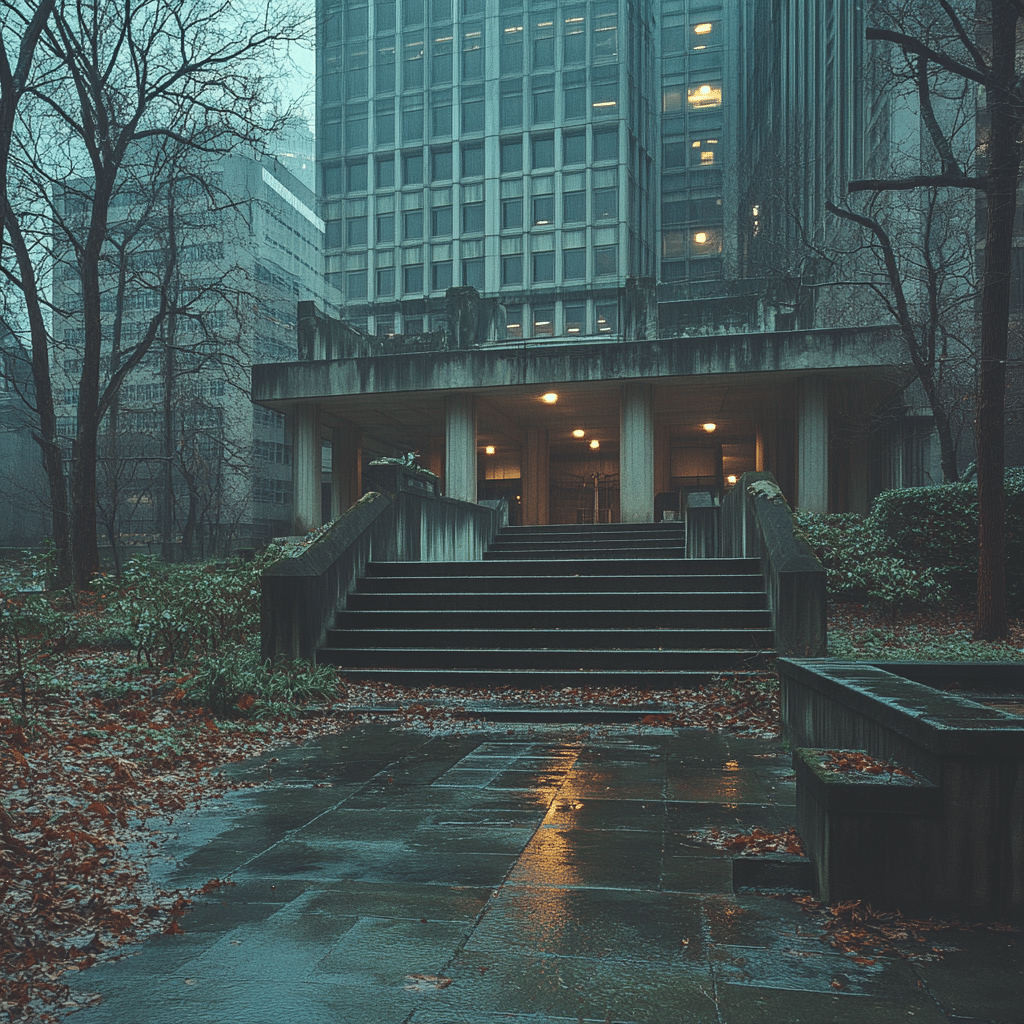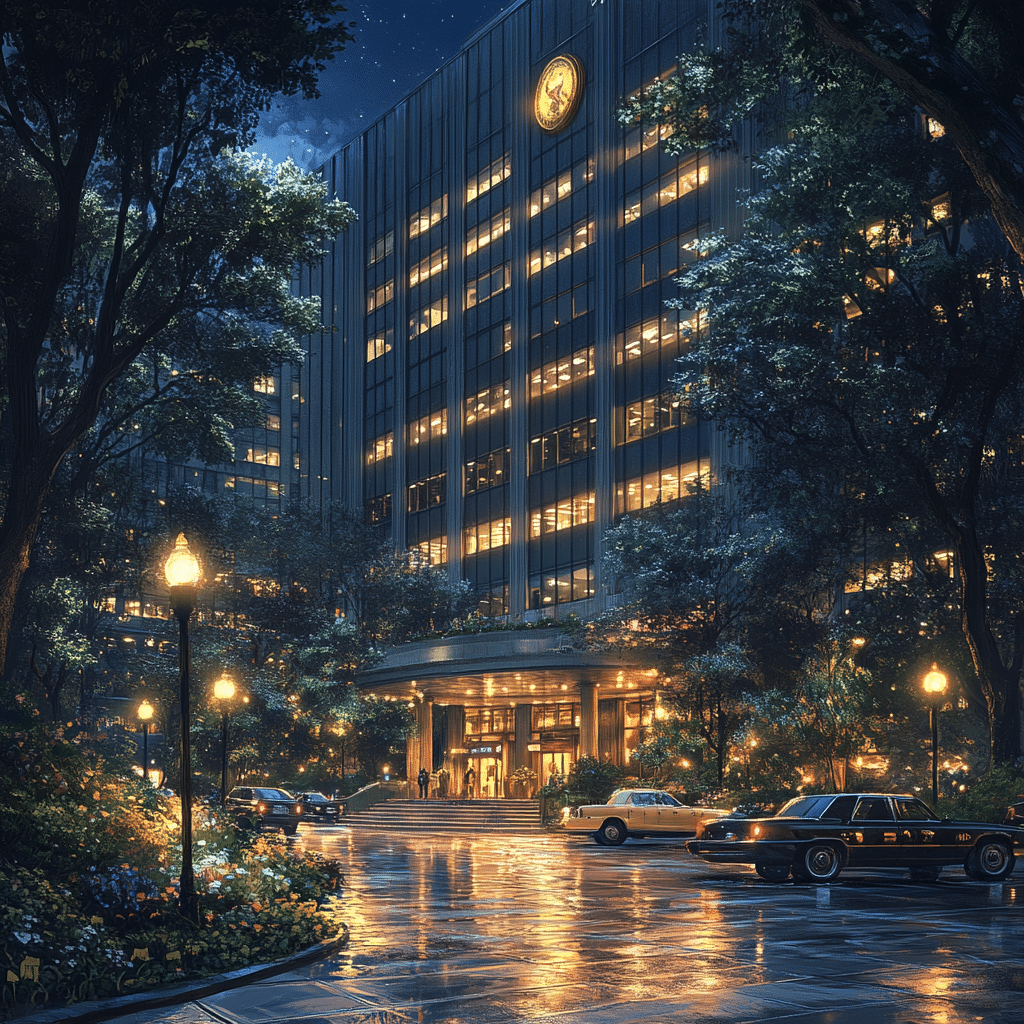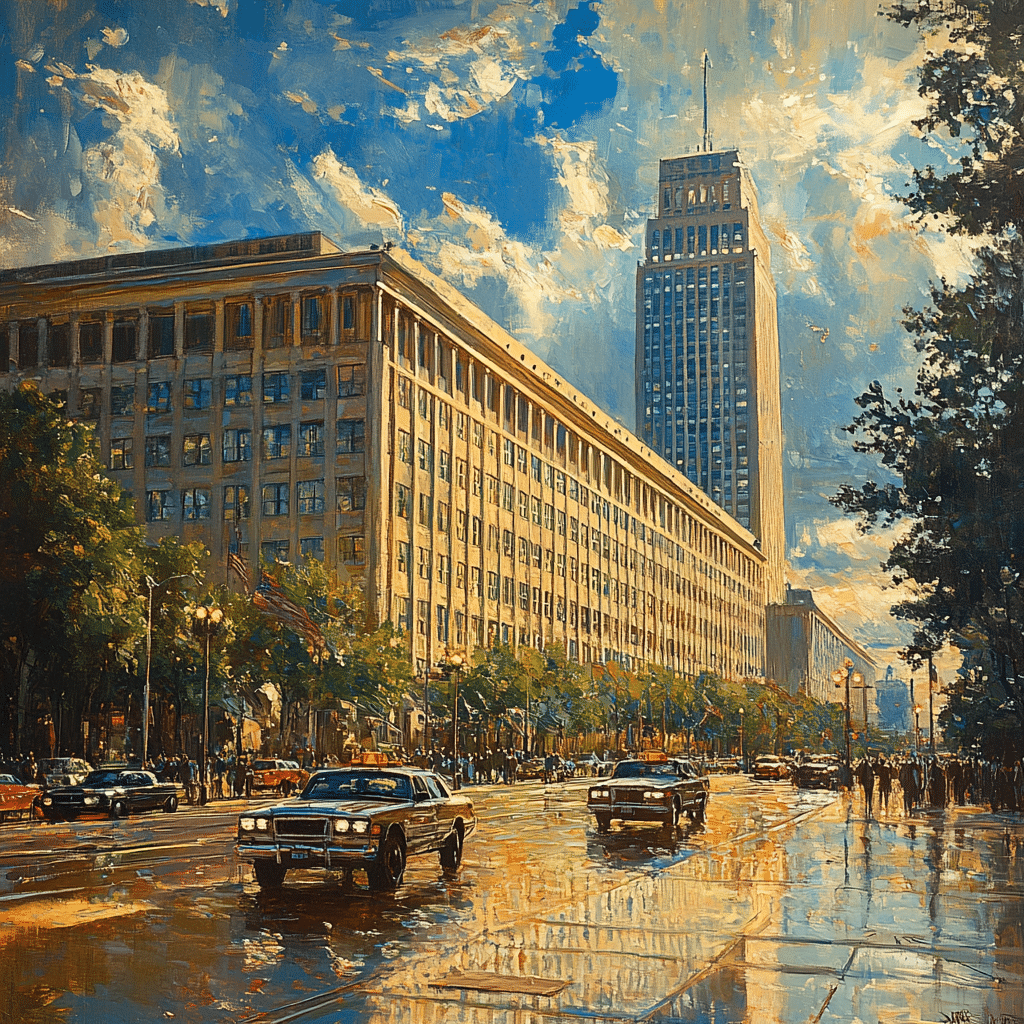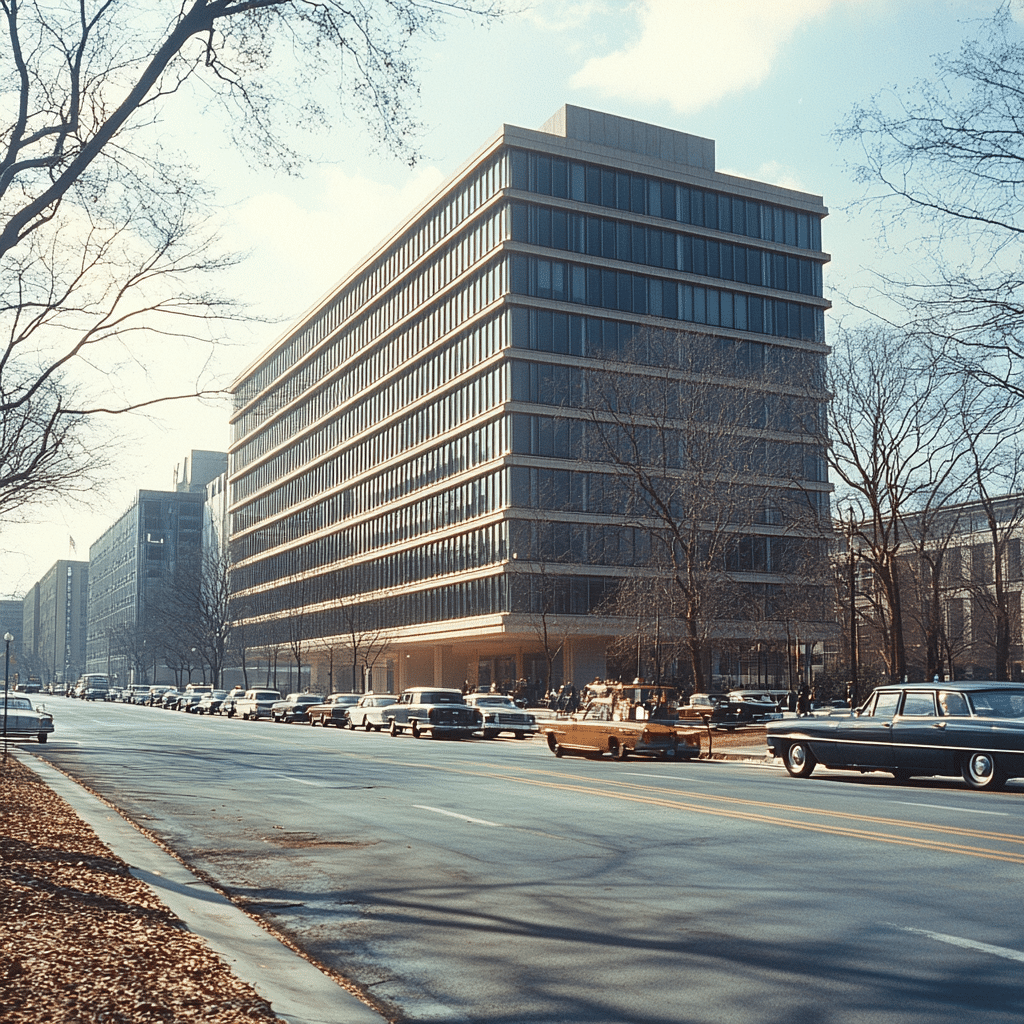The FBI headquarters stands tall between 9th and 10th Streets in northwest Washington, D.C., serving as a cornerstone of America’s national security. This facility is not just a building; it’s a symbol of law enforcement’s evolution and commitment to the American public. Initially established in 1908, the FBI has shifted from a small band of investigators to a global powerhouse in crime and terrorism combat. As we dig deeper into the secrets of the FBI headquarters, we uncover its pivotal role in protecting and serving the nation, showcasing both its challenges and triumphs.
The History of the FBI Headquarters: A Foundation of National Security
The tale of the FBI headquarters is more than just bricks and mortar; it’s about the commitment to keep America safe. Its establishment came in response to the growing complexity of crime in the early 20th century. Over the decades, the agency has adapted to challenges, from organized crime to the rise of terrorism, asserting its role in American democracy.
In the aftermath of the September 11 attacks, the transformation of the FBI became paramount. No longer could the agency operate in isolation; the need for collaboration with other agencies became clear. The establishment of the National Security Branch at the FBI headquarters further emphasized its necessity in safeguarding Americans. It’s this history that shapes how the agency operates today.
By understanding the roots and evolution of the FBI headquarters, we gain insight not only into the agency’s functions but also the pressing challenges it faces in the approaching digital age. As it moves forward, it’s committed to protecting civil liberties while addressing emerging threats that could jeopardize national security.

Top 7 Secrets of the FBI Headquarters That Everyone Should Know
1. The Design and Architecture
The J. Edgar Hoover Building is a marvel of Brutalist architecture, completed in 1975. Its stark and monolithic style mirrors the FBI’s efficient and security-driven ethos. Critics have called for modernization, but the building stands as a testament to the agency’s dedication. Just walk by, and you can feel the weight of history intertwined in its concrete walls.
2. The Role of the FBI in Counterterrorism
After the terror of 9/11, the FBI headquarters became an essential hub for counterterrorism. Intelligence-sharing between the FBI and agencies like the CIA is now streamlined, working more cohesively than ever. This partnership fortifies America’s defenses, ensuring that terrorist threats do not materialize unchecked.
3. The Vault: A Repository of National Secrets
One of the most intriguing features of the FBI headquarters is “The Vault.” This online database allows the public to explore historical documents spanning significant cases. From the Watergate scandal to various civil rights matters, it serves as a transparency tool, shedding light on the agency’s choices and controversies throughout the years.
4. Technological Advancements at Headquarters
The FBI is at the forefront of technological innovation in law enforcement. The Criminal Justice Information Services Division leads the charge, utilizing cutting-edge data analytics and biometric systems. This emphasis on technology enables the FBI headquarters to connect dots that may otherwise remain hidden, providing critical insights into criminal patterns.
5. Psychological Profiling and Behavioral Analysis
Within the FBI headquarters lies the Behavioral Analysis Unit (BAU), famed for its depiction in shows like “Criminal Minds.” This unit employs psychological profiling to assist in untangling complex cases, especially involving serial offenders. Their strategies have set a standard for modern investigations, guiding law enforcement across the nation.
6. How the FBI Headquarters Influences Policy
The power of the FBI stretches beyond law enforcement; it influences national policy as well. Investigations of high-profile figures often lead to wider discussions about crucial issues like cybersecurity. The inquiry into Russian interference during the 2016 election sparked vital conversations, guiding legislative measures aimed at protecting the integrity of American democracy.
7. The FBI Headquarters and Public Perception
Public perception of the FBI has been a wild rollercoaster over the years. Events like the Hillary Clinton email investigation and the Mueller probe have polarized views on the agency. Understanding these incidents is crucial to grasping how the FBI navigates its role, striving to maintain credibility as a national institution amid heightened scrutiny.

The Future of the FBI Headquarters: Adapting to New Challenges
Peering into the crystal ball, what does the future hold for the FBI headquarters? As we gear up for an increasingly digital world, threats like cybercrime and domestic extremism loom large. The FBI is proactively reallocating resources and strategies to meet these challenges head-on.
With the speed of technological advancement, the agency must strike a careful balance. Safeguarding national security while ensuring public trust is no small feat. The importance of transparency must not overshadow the need for confidentiality when it comes to sensitive operations.
The FBI headquarters embodies both the responsibilities of law enforcement and the delicate dance of maintaining civil liberties. By exploring its history, secrets, and evolving missions, we gain a deeper understanding of how this institution shapes the enforcement landscape in America. It remains ever-vigilant, committed to facing any challenge that threatens the safety and liberty of the American people.
In the end, whether you’re discussing counter-terrorism measures or the latest FBI investigation into election integrity, the work done within those walls resonates with every American. The FBI headquarters isn’t just a building; it’s a cornerstone of our democracy, reminding us all of the values we must uphold in an ever-changing world.
FBI Headquarters: Secrets Behind America’s Most Important Hub
The History of FBI Headquarters
Did you know that the FBI Headquarters has undergone significant changes since its inception? Originally located in a small building on Pennsylvania Avenue, the agency moved to its current digs—the J. Edgar Hoover Building—in 1975. This iconic structure’s distinctive Brutalist architecture has made it a fixture in Washington, D.C., even as it faces calls for modernization. The building is not just an office; it also houses artifacts from prominent cases, which could rival the treasures in Antarctica From space for their intriguing stories.
Inside the FBI Headquarters
Inside the FBI Headquarters, agents work tirelessly, adhering to strict protocols and regulations, much like the Ira Rules For withdrawal that keep financial investments in check. Here, classified materials are often exchanged to keep America safe, paralleling how fast-food chains like McDonald’s offer specials to keep their business enticing. Just like those meals, each operation is carefully planned to ensure efficiency, demonstrating an engaging mix of strategy and execution. Did you know that the headquarters spans 2.7 million square feet? That’s a lot of space for agents to chase down bad guys!
Security and Secrecy
With national security at stake, the FBI Headquarters operates under a veil of secrecy that even casual onlookers wonder about. Many of us love a good mystery, whether it’s the age-old debate on whether Babe Ruth was black or the critical buzz surrounding Paris, France, bed bugs. The building is designed not just as a workspace but as a fortified hub to protect its inner workings. Interestingly, each floor is equipped with advanced security systems, making it one of the most secure places in the country—almost as secure as the popularity of Gojo x Geto and the endless conversations that surround it!
As we peel back the layers of the FBI Headquarters, it becomes clear that this isn’t just a place where agents work; it’s a rich tapestry of history and modernity, all rolled into one. Understanding the ins and outs of the headquarters gives us a deeper appreciation for its role in safeguarding our nation—much like how effective agents function amidst a world full of threats. And just as many have shown interest in the complex dynamics of players like Urias in baseball, a similar curiosity surrounds the storied walls of the FBI’s operations.

What is quantico FBI?
Quantico is the location of the FBI Academy in Virginia, where new agents and analysts undergo rigorous training. It’s also home to the FBI Laboratory and other important divisions, providing top-notch preparation for real-world challenges in law enforcement.
How do I get in contact with the FBI?
To get in contact with the FBI, you can call their Criminal Justice Information Services Division at (304) 625-2000. For local matters, you can also reach out to the nearest field office or visit their website for more information.
What are the most popular FBI field offices?
Some of the most popular FBI field offices include those in New York City, Washington, D.C., and Los Angeles. These offices handle many high-profile cases due to their locations in major metropolitan areas.
How many people work at FBI HQ?
While the exact number of employees at FBI Headquarters varies, it typically employs thousands of staff, including agents, analysts, and support personnel, all working together to carry out the agency’s mission.
Do all FBI employees have to go to Quantico?
Not all FBI employees need to go to Quantico, but special agents and intelligence analysts must complete training there as a crucial part of their onboarding process.
How much do FBI agents make in Quantico?
Salaries for FBI agents in Quantico can vary based on experience and rank, generally ranging from about $50,000 for new agents to over $140,000 for those with more experience and leadership roles.
Can you walk into the FBI headquarters?
You can’t just walk into the FBI Headquarters without an appointment or a legitimate reason, as security at the location is quite tight. Visits are usually by invitation or for specific events.
Can you report directly to FBI?
Yes, you can report directly to the FBI by visiting a local field office or contacting them through their website if you have information about a crime or suspicious activity.
Should I talk to the FBI without a lawyer?
It’s generally advised to consult with a lawyer before speaking to the FBI, as they may ask questions that could be incriminating, and it’s wise to have legal advice.
Who is the most famous FBI?
One of the most famous figures in FBI history is J. Edgar Hoover, the first director of the FBI, who played a significant role in shaping the agency from its founding in 1935 until his death in 1972.
What state do FBI agents make the most money?
FBI agents tend to earn the most in California, particularly in cities like San Francisco and Los Angeles, where the cost of living is high and salaries are often adjusted accordingly.
Do FBI agents get to choose where they live?
FBI agents do have some flexibility in choosing where they live, but they need to be stationed at a particular field office and may have to relocate during their careers based on assignments.
What’s higher than the FBI?
Agencies like the CIA and NSA operate at different functions and levels of government but aren’t “higher” than the FBI. They all focus on distinct aspects of national security and intelligence.
Who controls the FBI?
The FBI is controlled by the Department of Justice and ultimately reports to the Attorney General, who serves in the U.S. government.
What is the smallest field office in the FBI?
The smallest field office in the FBI is typically one in a less populated region, often referred to as a satellite office, and these can vary in size and resources.
What is the purpose of Quantico?
Quantico plays a crucial role in training law enforcement personnel, preparing them for real-life situations they will face in their careers, ultimately enhancing public safety.
What is Quantico famous for?
Quantico is particularly famous for being the training site for FBI agents, as well as for its role in popular culture, often depicted in movies and TV shows related to law enforcement and criminal justice.
Can anyone enter Quantico?
Access to Quantico is restricted, and not everyone can enter without proper clearance or an official visit purpose, so it’s best to check ahead if you’re interested in going.
Is FBI still in Quantico?
Yes, the FBI is still very much operational in Quantico, maintaining its training facilities and various divisions that play vital roles in law enforcement and public safety.





































